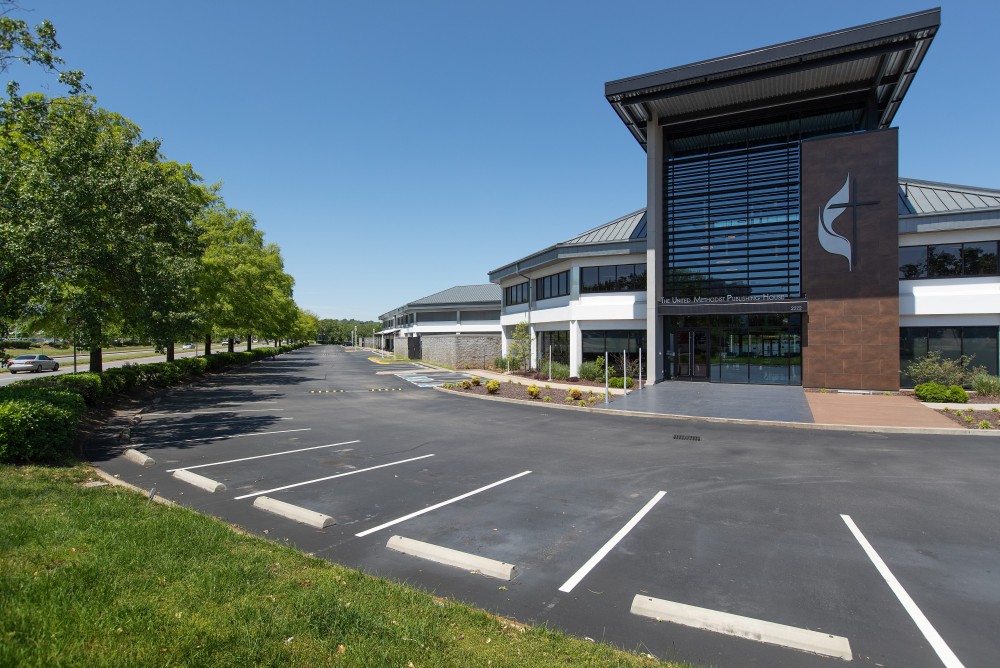Christian publishing houses announce layoffs

The ongoing COVID-19 pandemic is taking a toll on Christian publishing companies. The publishing arms of the nation’s two largest Protestant denominations—the Southern Baptist Convention and the United Methodist Church—both announced staff cuts at the end of April as a result of the virus.
The United Methodist Publishing House will lay off about 70 of its 296 employees in June. The Southern Baptist Convention’s LifeWay Christian Resources started reducing staff on May 1, in addition to implementing hiring and salary freezes and cutbacks.
Read our latest issue or browse back issues.
Both publishing companies cited significant sales declines since March, when states started imposing lockdown measures to restrict large gatherings and nonessential social contact in an effort to reduce further spread of the coronavirus.
LifeWay expects to cut up to $30 million of recurring operating budget expenses with its cost-cutting measures. The company anticipates that it could lose tens of millions of dollars of revenue that it normally earns each summer from vacation Bible schools, camps, events, and curriculum sales.
“We know these decisions will cause pain and affect every LifeWay employee in some way,” LifeWay CEO Ben Mandrell said in a press release. “But we are committed to helping our employees transition well.” LifeWay employees impacted by staff reductions will receive a benefits package, including severance pay where applicable.
Brian Milford, president and publisher of UMPH, told the Christian Century that laid-off employees will receive two to eight weeks of full pay plus unused paid time off, as well as health insurance for one additional month.
Numerous United Methodist congregations have suspended in-person worship during the coronavirus crisis and do not know when they will reopen and resume regular activities. UMPH is self-sustaining and earns revenue through publishing and selling Sunday school curricula, small-group study materials, Bibles, worship resources, and other products. It does not receive general church funds.
“In the midst of the global pandemic, we are once again making adjustments to assure that we fulfill our responsibilities and remain fully self-supporting,” Milford said in a press release. Milford added that sales levels are anticipated to drop as low as 50 percent in 2020 compared to the same period in 2019.
After gradually diminishing in size and staff, UMPH closed all of its brick-and-mortar stores in 2012 and then its distribution center four years later. The latest round of staff reduction is “a wrenching decision that I deeply regret,” Milford said.
LifeWay closed all 170 of its retail stores last year after losing nearly $50 million between 2014 and 2019. Mandrell said that the publishing company was still rebounding when the coronavirus pandemic arrived in the United States.
Like UMPH, LifeWay is self-sustaining and does not receive denominational funding. LifeWay is also selling its Ridgecrest Conference Center and Summer Camps, located in North Carolina, to cut additional costs. Because of COVID-19 it was uncertain when the facilities would be able to reopen.
“We hope these proactive steps will allow LifeWay to continue ministering to churches throughout the crisis, however long it lasts, and long into the future,” Mandrell said. “We know the COVID-19 crisis has created a unique challenge for churches as they find new ways to gather, and many are also facing severe financial strains.”
Milford said that UMPH has frequently adapted to significant change in the church and in larger society, including economic shifts. Its mission, however, stays the same.
“UMPH is a ministry that can only continue to serve the church by practicing vigilant and prudent stewardship,” he said.





